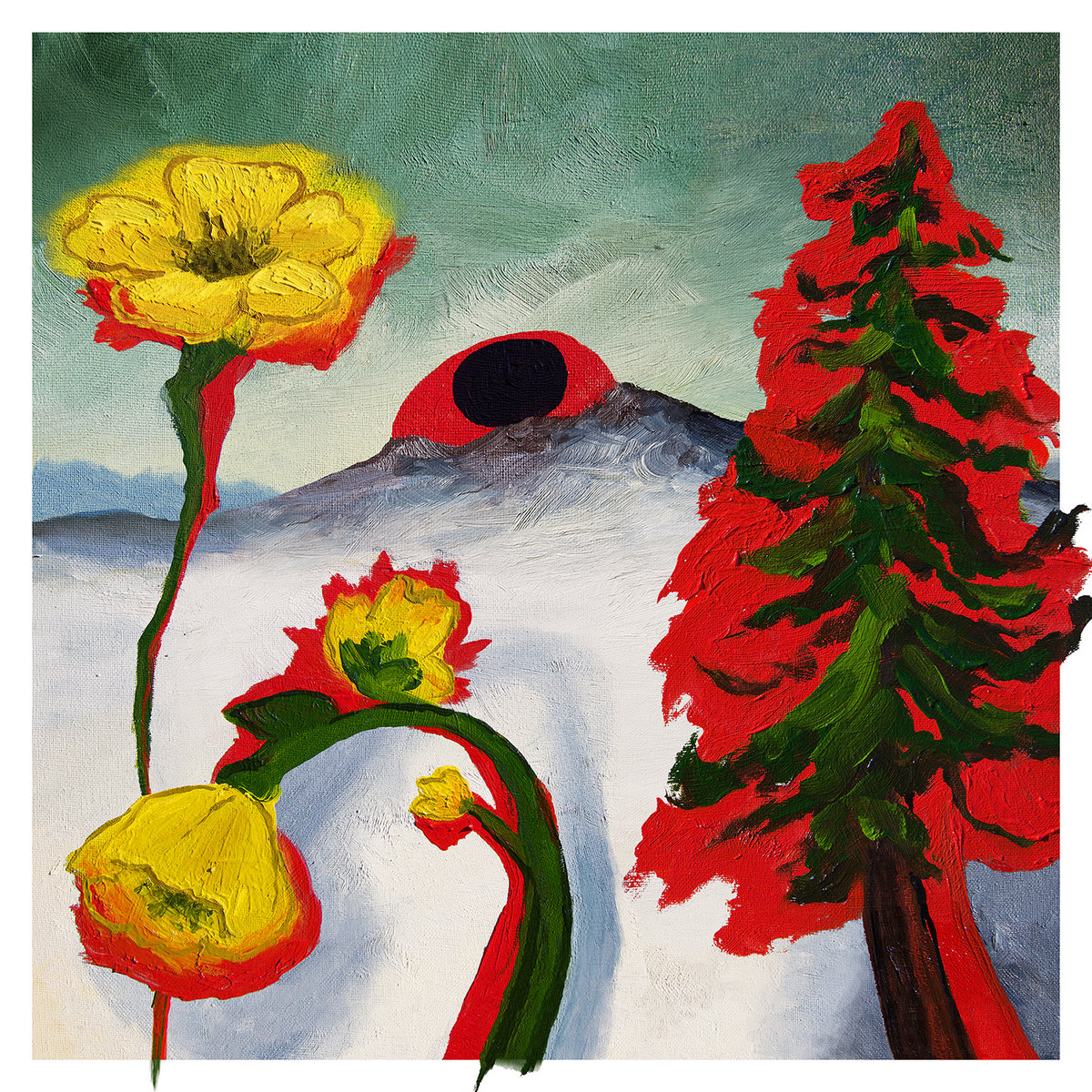2020 was a year that hurt to the touch. It was bewildering to go from winter’s bright promise to the abrupt Covid lockdown, and for all too many it was utterly devastating. Calendar years are not supposed to bring their own set of terrors, but this one did, from fears of a stolen election to worries about the health of loved ones. Sitting at home those first few months, I found myself listening to Miles Davis’s “Bitches Brew” over and over, as if repeated listening under teeth-grinding home confinement would lead to figuring it out, finally. In the weeks — in the months — that followed, I could listen only to music with a melodic, jangly aspect, which could account for why the 12th Tulip Frenzy Top 10 list might be, for the first time, satisfactory to people in my age cohort. It was not a year for punk rock.
There were some great re-issues this year. Wire was the last band we saw before the lockdown — crazily going to see them in March in a small club the week their U.S. tour was canceled and, on the home front, we shut down our office, but I was so glad to hear them play “German Shepherds” from their 2011 Strays E.P., which in May was released as part of the 10:20 collection of loose ends. An absolutely unexpected joy was discovering Anthony Moore’s Out, recorded in the mid-70s, released only in the mid-90s, and finally brought to my attention in September — an album that could live side-by-side with John Cale’s Fear and Brian Eno’s Taking Tiger Mountain By Strategy, with a band comprising Kevin Ayers on bass and a pre-Police Andy Summers on guitar. It is astonishing, and I urge you — with that same tone of voice that one suggests wearing a mask until the vaccine arrives — to quickly find it. Speaking of Eno, his Film Music 1976-2020 was filled with delights, particularly the track “Beach Sequence,” recorded with the four members of U2. And just last week came a 40th Anniversary release of Young Marble Giant’s Collosal Youth, which hasn’t aged a bit.
I feel compelled to call out an album that did not make it on this year’s Top 10 List. Over at Uncut, they list Bob Dylan’s Rough and Rowdy Ways as Album of the Year, and we get it. It was a great work of Late Phase Bob, worthy of official recognition. But while we yield to no humanoid when it comes to our belief that Old Man Dylan is at least the equal of Young Man Dylan, our actual listening to his 21st Century albums, at least more than a few times, culminated in Tell Tale Signs, that 2009 alternative-arrangement epic our team voted Album of the Year. So, we are not going to honor the 79-year old Nobel Laureate here. But just you wait til we tell you about this year’s winner, the 23-year old Fenne Lily.
On to the list…

#10. S. G. Goodman Old Time Feeling
I listened to S.G. Goodman’s debut album with the same astonishment and wide-mouthed joy that I greeted Whiskeytown’s Strangers Almanac more than 20 years ago — the last time an alt.country rec seized me like the slow disorienting rush of ingested windowpane. If, like me, you think of modern country as the battle between smug, faux outsiders and the still-wonderful real McCoy, then a lesbian classicist from rural Kentucky could pleasingly harken to memories of ’70s Outlaw Country leavened by the brilliant insights of a Resistance poet in Mitch McConnell’s backyard. The title song was one of the best rock’n’roll rippers of the year. Maybe when the political scientists try figuring out the 2020 election, they can parse these lyrics which kicked it off:
Oh, and my soul can’t afford those city lights
Not with the sickness in the countryside
Not with the wound that we’ve left open wide
Oh, believer, you be the healer
Can’t hear the peace train with that coal train gunning
To keep the peace you’ll keep that coal train running
Or find a way to keep those paychecks coming, ah-ah
One of the fiercest debates we had to moderate in the Tulip Frenzy HQ’s rec room was whether Goodman or Waxahatchee should round out the list, but while we loved the latter’s St. Cloud, the sheer grit of Old Time Feeling captured the final rung of the ladder and would not let go.
We’re not living in that Old Time Feeling, the remarkable S.G. Goodman sang on an album at once sympathetic to the land of her birth without ever falling into simplistic Hillbilly elegies. An astonishing country album by an artist going places even as she refuses to leave home.
#9. Vacant Lots Interzone
By the advent of summer, we were able to listen to things more adventuresome, harder edged than our springtime quest for melody had allowed, but even as Vacant Lots use electronica to establish the mood, they are brilliant and tuneful songwriters, and we welcomed their dark vision, their Blade Runner mise en-scene. In the spiritual rainy day weather of 2020, starting an album with a song called “Endless Rain” hit the spot. They’re the only band I can think of to mix rockabilly, disco and drum machines in a single song, and I find them irresistible either as foreground or background music, which is saying something.
While perhaps a little less gripping than Endless Night, which hit #5 on the 2017 Tulip Frenzy Top 10 List, the Vacant Lots showed on Interzone that they’re just hitting their stride. While their more recent release of odds and ends (November’s first rate Damage Control) revealed just how powerful an influence Anton Newcombe has had on the duo from Burlington, Vermont, Interzone shows just how well they’ve perfected the interplay between guitar and synths, and between dystopia and bliss.

#8. The Proper Ornaments Mission Bells
James Hoare’s band, The Proper Ornaments, rose from the ashes of the incredible Ultimate Painting, which sadly split in a messy divorce. While Jack Cooper recuperates with Modern Nature, who put out their own E.P. of bucolic music early in the summer, Hoare’s Proper Ornaments released another perfect example of quiet British pop. Mission Bells is an album that met the moment, gorgeous, a peaceful interior that occasionally raged with an undercurrent of angst. We listened to it so often during the early Covid lockdown that we began to associate it with sweatpants, sleeping through our anachronistic commuter’s alarm, and drinking coffee while avoiding the news. As pretty a homemade pop album as you will ever find, if you’re one of those people who like to follow up Nick Drake’s Pink Moon by putting on Rubber Soul, then Mission Bells is for you — and the antidote to the year’s disturbing headlines.
#7 Coriky Coriky
Ian Mackaye — he explains to non-Washingtonians — was Fugazi’s leader, co-singer, co-guitarist, co-songwriter. We credit him with quite deceptively keeping the whirlwind tightly controlled: it’s perhaps only in retrospect that the craftsmanship of his songs fully resonate with pop sensibilities — particularly the verse, chorus, nuclear war song structure also embraced by ’80s/’90s acts like the Pixies and Nirvana — revealed underneath the more obvious hardcore armor. Subsequently, with wife Amy Farina on vox + drums, Mackaye followed the breakup of Fugazi with The Evens, a band deliberately constructed for quiet mayhem — nearly as propulsive as his earlier bands, but with the duo able to play in the basement corner of a church, shunning the clinking bottles and boozy talk of bars and clubs with big stages. It has been eight long years since The Evens released The Odds, and so Mackaye and Farina’s return would be news enough. Yet their enlisting Fugazi and Messthetics bass player Joe Lally to join the fun just ensured that Coriky would be absolutely fucking brilliant.
From the opener, “Clean Kill” — which could easily have been on *both* Fugazi and The Evens’ set list — the quiet, understated poignancy of Mackaye, Farina and Lally’s playing blooms into something far more dynamic, and it clutched our heart and brain. When the song explodes, you’ll be forgiven for believing it to be a time bomb from Fugazi’s brilliant exit album, The Argument.
You don’t have to be from D.C. to grasp Coriky’s greatness, though it helps. This is an album that should rank high on every critic’s 2020 list, because like Mackaye’s earlier bands, we’ll be playing their music forever. And yet one of Mackaye’s most admirable traits is ambivalence about stardom, which is a reason you probably didn’t hear of The Evens or Coriky til we just told you about them. Confound Mackaye’s desire to remain subversively unnoticed: seek this album out.
#6. Death Valley Girls Under The Spell of Joy
It’s really hard to do what the Death Valley Girls accomplish on their magnificent Under the Spell of Joy. Since the earliest days of New Wave, or at least since Blondie, literally thousands of bands have tried grafting Girl Group sensibilities onto garage rock, with mixed results. On this album, though, the LA band has created a Phil Spector + garage band richness, even using a children’s chorus to round out the sound of sax, organ and riffing guitar. Like singers in the best Girl Groups, Bonnie Bloomgarden doesn’t have a classically great voice, but she gets the job done. Fans of First Communion Afterparty will recognize some of the psych song structures, and I can imagine Jason Pierce and his Spiritualized bandmates nodding their heads to this ‘un. From dance songs like “Little Things” and “Hold My Hand” to the cosmic verities of “The Universe,” Death Valley Girls are equally catchy and deep — again, hard to pull off. The music is familiar and original at the same time, beautiful and thrilling. The late Alan Betrock, who in addition to founding New York Rocker and producing Richard Hell’s Destiny Street and the first dBs album was a Girl Group aficionado, must be smiling in Heaven. In 2020, a miserable year, we are so glad we fell under the spell of joy.
#5. Kelley Stoltz Ah! (etc)
If any artist could thrive under Covid lockdown, it would be Kelley Stoltz. After all, he’s released 12 albums under his own name (and several others under pseudonyms) with nary a guest backup singer — Stoltz plays every instrument himself* — so adapting to an at-home environment would seem to be easier for him than, say, Wilco, or the far-flung New Pornographers. And sure enough, while earlier in the year he released a hard-rocking gem (Hard Feelings, recorded in 2019), November saw Ah! (etc), and this album recorded under semi-confinement is a delight.
Since 2008, when Tulip Frenzy was spawned, few are the years in which we did not feature one of Kelley’s albums in our Top 10. History has proved there are only two kinds of Kelly Stoltz albums — good ones and great ones. Ah! (etc) is a great one.
What’s the difference? Well, the best Kelley Stoltz albums make ample use of Kelley’s songwriting influences (Ray Davies, David Bowie circa ’70-’83, Echo and The Bunnymen), compounded by his genius for song arrangements, and most importantly his ability to stitch together multiple instruments into what sounds not just like a band, but a great band. Like, a Rolling Stones great band. He is sui generis, nonpareil, a complete original operating inside the confines of the kind of pop music that has always twanged our woogie. While Que Aura shared album of the year honors in 2017, several of his best works have, due to intense competition, just missed the highest mark, as this one does. But give him points for consistency: no artist has been on our list more often (we had an intern check.)
Listen to “Dodged a Bullet” from Ah! (etc) and you’ll instantly see why Kelley’s claimed his customary spot in our Top 5. It sports an Enoesque processed guitar sound, inventive drumming, a solid bass track, and Kelley’s voice. That’s all you need! He never lets you see him sweat even as he casts his hooks deep into the surf. You never know which instrument is going to reveal itself as Kelley’s favorite (on this ‘un, the drums, though pretty often it’s the bass.)
We’re happy to discover that the fella who operates out of Brookyn Vegan‘s Indie Basement shares our mania for all things Kelley. Isn’t it time you did too?
*On Ah! (etc), Stoltz pal and sometimes bandmate in Echo and the Bunnymen, Will Sergeant, plays lead guitar on one track, and adds spoken words to another, thus breaking up, so far as I know, Stoltz’s perfect record of solo album performances.
#4. Woods Strange To Explain
In the early days of the lockdown, there was something weirdly reassuring to hear songs from Woods’ wonderful Strange to Explain, which returns one of America’s cultural gems back to the Tulip Frenzy Top 10 List. It wasn’t just that Jeremy Earle’s songs were beautiful and inventive, it was his thematic exploration of dreaming — and particularly, the dream life of his infant daughter. Not just the sound, but the lyrics met the moment. I dunno, it’s strange to explain.
The last outing for Earle and multi-instrumentalist bandmate Jarvis Traveniere was on last year’s release by Purple Mountains — the band Silver Jews leader David Berman formed around the nucleus of Woods to record what turned out to be his final songs. Their album entered the world to accolades — and Berman promptly committed suicide. To go from such trauma to such a gorgeous, beguiling album as Strange To Explain is a testament to Woods’ enormous courage, not to mention talent.
Look, we loved the Woods of Bend Beyond, but by the time they got to Love is Love (2017), it seemed like their need to showcase, maybe even show off their musical growth took them to playing different idioms at the expense of revealing their heart. It would seem the twin events in Earle’s life — becoming a father and losing a friend to suicide — shook them hard. The result is an album at least as satisfying as anything they’ve done before. It still shows off their growth, their enormous collective talent — utilizing synths and mellotron, playing Mexicali music as well as Calexico — but this is an album that works as a whole, from beginning to end.
Given the regrets we have for 2020, we’re grateful to have Woods return, like an old friend, with a new batch of primo, weirdo songs.
#3. Angel Olsen Whole New Mess
Last year, when we put Angel Olsen’s All Mirrors in the #9 slot on our Top Ten List, we wrote, “We don’t think there has ever been an album that has made the Tulip Frenzy Top 10 List (c) that we have played less. Some of its absence from our car stereo speakers is that Mrs. Tulip Frenzy is not a fan, but mostly it’s that Olsen’s album, like her voice and the string arrangements on it, is so intense, one has to lash himself to the car’s hood ornament in order to glide past the Sirens’ Songs contained herein.”
We meant it: All Mirrors had great songs, incredible performances, but there was something about it that was so over the top, we could recognize its excellence without loving it. So you can imagine our excitement when we learned that, as she had promised when All Mirrors came out, Olsen really did intend to release into the world the original version of the album that she had recorded, before going back into the studio to add what amounted to a bucket of gloss.
Whole New Mess isn’t a reissue – it’s an album in the same spirit as Dylan’s More Blood, More Tracks, in which the artist allows the world to see the earlier, unadulterated vision. As with Dylan’s release of a less adorned version of his classic Blood on the Tracks, Angel Olsen’s giving us these songs in this form is like walking into the Sistine Chapel fresh from its restoration.
On a song like “(New Love) Cassette” (which on Whole New Mess was called “New Love Cassette”), not too much has changed. But on the very next song, the standout of last year’s album, “All Mirrors” (here called “We Are All Mirrors,”) the absence of varnish, the more understated approach is, to these ears, so much stronger. “Lark Song” minus strings sounds like it could be a cover of a track by the Velvet Underground, so great is the transformation, or I guess we should say, restoration.
We wish more artists had the courage to show us their faces without their makeup. To trust fans, as PJ Harvey just did with the demo release of To Bring You My Love, with the knowledge that sometimes the rawer version of a recording is better than what the record label dictated should go out into the world. Dylan regularly gives us alternative arrangements of songs long since deemed classics. That a comparatively young artist such as Angel Olsen is doing so shows the kind of vision that can make an artist’s career last every bit as long as our Nobel Laureate’s.
#2. Oh Sees Protean Threat
We said that 2020 was not a year for punk rock, so obviously we must have been in a better place — psychologically, if not physically — when, in August, Oh Sees released their brilliant Protean Threat. While it’s not exactly punk — John Dwyer’s combo, whether you call them Oh Sees, Thee Oh Sees, OSEES or OCS, have settled into very much their own gooey puree of jazz fusion, Krautrock, metal, noise rock and psych — Protean Threat was the hardest, loudest album we listened to this year.
We were glad to do so, though admittedly, we didn’t get it at first. Unlike others who fell down as drooling supplicants before Oh Sees’s 2019 Face Stabber, we didn’t much like it. And longtime readers of this list surely know, that was strange since Thee Oh Sees are one of our favorite bands. So of course we gave Protean Threat a serious listen, and while it took a few tries, once we accommodated ourselves to its complex structure, all the magic of John Dwyer leading the tightest progrock combo on the planet hit us hard. You might even say it stabbed us in the face.
Now, just a few weeks ago, the good folks at Levitation in Austin released a show — originally streamed live — of Oh Sees playing in Joshua Tree (see: Levitation Sessions Live: Thee Oh Sees & Oh Sees), and you can get a sense of just how tight these guys are in the wild: double drummers playing with polyrhythmic perversity, with just a bass player and keyboards behind Dwyer on vox + guitar. In the studio, they are welded.
Just before Protean Threat came out, Dwyer gave us an album by Bent Arcana, his actual jazz-fusion band, with an entirely different set of players. No vocals on that one, just a more reverent take on the genre. It’s so calm and polite compared to the wildness contained herein. Even in Covid year, I guess, we needed an outlet, and the return of Oh Sees to our earbuds gave it to us.
##1. Fenne Lily BREACH
We’re willing to bet boatloads of cryptocurrency this is the one and only time that Fenne Lily and Oh Sees will ever appear back to back — in print, on stage, or anyone’s playlist. For as loud as the latter is, Lily’s music is quiet, tuneful folk pop, catchy as a certain flu from Wuhan, emotionally magnetic.
I dunno, maybe the raw knuckled disorientation of 2020 brought out a latent need to watch romcoms, to care about a young woman’s heartbreaks. All we know is that we’ve never been so drawn into an album where our dominant emotion could be classified as parental concern. When you hear lyrics like, “I gave up smoking when I was coughing up blood/And when I felt better I took it straight back up,” you want to do something about it. With so many of the biting, beautiful songs addressed to an unnamed “you,” we found ourselves wondering whether it was all the same guy who treated her so badly, or a series of guys, and — like any clueless parent — we didn’t know which was worse.
All we know is that this 23-year old from Bristol, England has produced a pop album that is an instant classic. With a quiet, breathy voice — in a completely different weight class to Angel Olsen’s — you strain to hear it. And yet it packs an emotional wallop. In a chorus that goes, “You’re telling me I’m in your head like it’s a good thing/Telling me she’s in your bed like it was nothing,” the vocal tone, melodic impact and devastating words come together like a sealed indictment.
She can rock, too. “Solipsism” is one of the best garage pop songs of this or any era, a softer version of what Courtney Barnett did so effectively on The Double EP: A Sea of Split Peas. Our only wish here is that two of the singles Lily released in 2020, “Hypochondriac,” and “To Be A Woman, Pt. 2,” had been included, as they’re clearly part of the same song cycle.
“I Used To Hate My Body But Now I Just Hate You” may be the album’s summary statement and most effective moment.
“I read all of the books you recommended/I listened to your friend’s band all of the time/You justify and satiate my hunger/For not feeling alright,” she tells her ex.
But later, when she gets to her biggest putdown, she reveals more about herself than him: “I heard you live at home now with your parents/It doesn’t satisfy me like it should/I still see you as some kind of reassurance/That someday I’ll be understood.”
If quoting such lyrics seems out of character for Tulip Frenzy, Breach is that kind of album, and 2020 was that kind of year.








